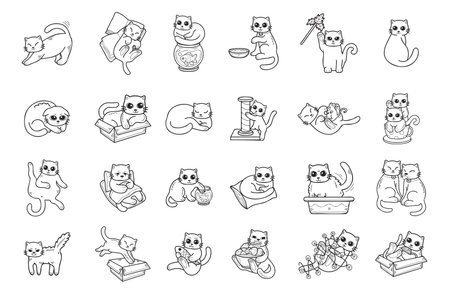1. Essential Equipment for Reptile Care
Reptiles have unique care requirements that differ from traditional pets. To ensure their well-being, it’s crucial to provide the right tools and equipment. Below are some essential items every reptile owner should have.
Temperature-Controlled Enclosures
Reptiles rely on external heat sources to regulate their body temperature. A temperature-controlled enclosure ensures they receive the warmth they need without overheating. Consider using the following:
| Equipment | Purpose |
|---|---|
| Heat Lamps | Provide warmth for basking areas |
| Under-Tank Heaters | Create a consistent heat source from below |
| Ceramic Heat Emitters | Deliver heat without light for nighttime use |
| Thermostats | Regulate and maintain the proper temperature range |
Misting Systems for Proper Humidity
Certain reptiles, like chameleons and tropical species, require high humidity levels to stay healthy. A misting system can help maintain the right moisture levels in their habitat. Some options include:
- Automatic Misting Systems: Ideal for maintaining consistent humidity without manual spraying.
- Handheld Spray Bottles: A budget-friendly option for occasional misting.
- Drip Systems: Useful for reptiles that prefer drinking moving water, such as chameleons.
Feeding Tongs for Safe Handling
Avoid direct contact with feeder insects or rodents by using feeding tongs. These tools help prevent accidental bites and allow precise food placement.
- Stainless Steel Tongs: Durable and easy to clean.
- Bamboo Tweezers: A gentler option for delicate reptiles.
- Long-Handled Tongs: Keep a safe distance when feeding larger or more aggressive reptiles.
The Right Setup Makes All the Difference
Selecting the appropriate equipment ensures your reptile stays comfortable and healthy. By investing in a proper enclosure, humidity control, and feeding tools, you create an environment that mimics their natural habitat.
2. Handling and Habitat Needs for Exotic Birds
Exotic birds, such as parrots, macaws, and cockatoos, require specialized care to ensure their health and safety. Proper cages, perches, and handling tools are essential for creating a secure and comfortable environment. Choosing the right equipment can help prevent stress and injuries while promoting a happy and enriched life for your feathered friend.
Essential Cages for Exotic Birds
A well-designed cage provides a safe space for exotic birds to rest, play, and eat. When selecting a cage, consider the bird’s size, activity level, and beak strength.
| Cage Type | Best For | Key Features |
|---|---|---|
| Stainless Steel Cage | Large parrots (macaws, cockatoos) | Durable, rust-resistant, easy to clean |
| Dome-Top Cage | Medium-sized parrots (African greys, Amazons) | Extra headroom for climbing and playing |
| Flight Cage | Small birds (finches, parakeets) | Larger space for flying and exercise |
The Importance of Perches
A variety of perches helps maintain foot health and prevents pressure sores. Birds need different textures and diameters to exercise their feet properly.
Recommended Perch Types:
- Natural Wood Perches: Mimic tree branches and provide a comfortable grip.
- Pumice Perches: Help trim nails naturally while offering a rough texture.
- Bendable Rope Perches: Encourage movement and prevent foot fatigue.
The Right Handling Gloves for Safety
If you need to handle an exotic bird that is not yet fully tamed or tends to bite, using proper handling gloves can protect your hands from injury. However, gloves should be used cautiously since some birds may become fearful or stressed by them.
Best Gloves for Handling Birds:
- Padded Leather Gloves: Ideal for large birds with strong beaks like macaws or cockatoos.
- Nitrile-Coated Gloves: Offer protection while allowing better dexterity when handling smaller birds.
- Cotton Handling Gloves: Suitable for gentle handling of smaller species.
Creating a Comfortable Environment
Apart from cages and perches, exotic birds thrive in environments that stimulate their natural behaviors. Toys, interactive feeders, and regular social interaction are crucial for their well-being. Keeping the habitat clean and ensuring proper lighting can also contribute to a healthy lifestyle.

3. Specialized Gear for Small Mammals
Small exotic mammals, such as hedgehogs, sugar gliders, and chinchillas, require specialized equipment to ensure their safety, comfort, and overall well-being. Having the right gear can make a significant difference in their quality of life and help pet owners manage their care more efficiently.
Essential Equipment for Exotic Small Mammals
Providing a safe and stimulating environment is crucial for small exotic pets. Below are some must-have tools and equipment:
Secure Enclosures
A proper enclosure is one of the most important pieces of equipment for small mammals. It should be spacious enough to allow movement while being escape-proof to prevent accidents.
| Pet Type | Recommended Enclosure |
|---|---|
| Hedgehogs | A large plastic or wire cage with a solid bottom and good ventilation. |
| Sugar Gliders | A tall wire cage with horizontal bars for climbing. |
| Chinchillas | A multi-level wire cage with plenty of space for jumping. |
Exercise Wheels
An exercise wheel is essential for many small exotic pets to stay active and healthy. Its important to choose the right type of wheel based on the pet’s size and species.
- Hedgehogs: A solid-surface wheel (12 inches or larger) to protect their feet from injury.
- Sugar Gliders: A silent spinner-style wheel designed specifically for gliders.
- Chinchillas: A large, sturdy metal wheel (at least 15 inches) without crossbars.
Bedding and Substrate
The right bedding plays a key role in keeping small mammals comfortable while also maintaining hygiene in their enclosures.
| Bedding Type | Best For | Avoid |
|---|---|---|
| Aspen Shavings | Mice, Rats, Hedgehogs | Cedar and Pine shavings due to harmful oils. |
| Paper-Based Bedding | Sugar Gliders, Chinchillas, Hedgehogs | Scented bedding that may cause respiratory issues. |
| Pelleted Bedding | Larger rodents like Guinea Pigs or Rabbits | Dusty or overly absorbent materials that can cause irritation. |
Additional Accessories for Comfort and Enrichment
- Hideouts and Shelters: Provide a safe retreat where small mammals can feel secure.
- Toys and Climbing Structures: Sugar gliders and chinchillas benefit from ropes, ladders, and branches for climbing.
- Dust Baths (for Chinchillas): Special dust baths help maintain their fur health.
- Nesting Pouches (for Sugar Gliders): Soft fleece pouches mimic their natural sleeping environment.
Selecting the right equipment ensures that exotic small mammals have a safe, engaging, and comfortable living space. Whether it’s a well-ventilated enclosure, an appropriate exercise wheel, or soft bedding, having the correct gear makes all the difference in providing top-notch care for these unique pets.
4. Aquatic and Semi-Aquatic Pet Essentials
Keeping aquatic and semi-aquatic pets healthy requires the right tools and equipment to maintain water quality, lighting, and filtration. Whether you own turtles, amphibians, or exotic fish, providing a stable and clean environment is key to their well-being.
Filtration Systems
A good filtration system is essential for removing waste, debris, and harmful toxins from the water. Depending on your pet’s needs, you may need one of the following types:
| Filter Type | Best For | Key Benefits |
|---|---|---|
| Canister Filters | Large tanks with turtles or fish | Powerful filtration with mechanical, chemical, and biological stages |
| Sponge Filters | Small tanks with amphibians or shrimp | Gentle filtration that doesn’t create strong currents |
| Hang-on-Back (HOB) Filters | Medium-sized aquariums | Easy to maintain and effective at clearing debris |
UVB Lighting for Reptiles and Amphibians
If you have semi-aquatic reptiles like turtles or amphibians that require basking time, UVB lighting is crucial. It helps them synthesize vitamin D3, which aids in calcium absorption for strong bones and shells. Choose a bulb that provides adequate UVB exposure based on your pet’s specific needs.
Water Conditioning Tools
The quality of water directly affects the health of aquatic pets. Using water conditioners can help remove harmful chemicals such as chlorine and chloramine found in tap water. Here are some must-have tools:
- Dechlorinators: Neutralize chlorine and heavy metals in tap water.
- Water Test Kits: Monitor pH levels, ammonia, nitrates, and nitrites regularly.
- Aquarium Heaters: Maintain a stable temperature for tropical species.
- Basking Platforms: Provide semi-aquatic pets with a dry area for rest.
Maintaining a Healthy Habitat
A well-maintained aquatic habitat ensures the longevity of your exotic pet. Regular cleaning routines, proper filtration, and correct lighting will help keep their environment safe and comfortable. Investing in high-quality equipment tailored to your pet’s species will make care easier while promoting their overall health.
5. Safety and Handling Tools for Exotic Invertebrates
Handling exotic invertebrates like tarantulas, scorpions, and centipedes requires specialized tools to ensure both your safety and the well-being of your pet. These creatures can be delicate or even dangerous, so using the right equipment is essential.
Specialized Containers for Secure Handling
Having a secure and well-ventilated container is crucial when transferring or temporarily housing your invertebrate. Escape-proof enclosures prevent accidents while ensuring proper airflow.
| Container Type | Best For | Key Features |
|---|---|---|
| Acrylic Enclosure | Tarantulas, Scorpions | Clear visibility, secure locking mechanism |
| Deli Cups | Small Spiders, Insects | Lightweight, ventilated lid |
| Packing Tubes | Catching & Transporting | Narrow opening to prevent escape |
Feeding Tongs for Safe Interaction
Avoid using your hands when feeding exotic invertebrates, as some species may bite or sting. Long-handled feeding tongs allow you to safely place food inside their enclosure without disturbing them.
Choosing the Right Feeding Tongs
- Stainless Steel Tongs: Durable and easy to clean.
- Bamboo Tongs: Lightweight and gentle on delicate creatures.
- Curved Tip Tongs: Provide better control when handling live prey.
Protective Gloves for Extra Safety
If you need to handle your invertebrate directly, wearing protective gloves can help prevent accidental bites or stings. However, gloves should be thin enough to maintain dexterity while ensuring protection.
Recommended Glove Types
- Nitrile Gloves: Thin but protective against mild irritation.
- Puncture-Resistant Gloves: Ideal for handling scorpions or aggressive species.
- Cotton Gloves: Best for delicate handling with minimal stress to the animal.
The Importance of Proper Tools
The right tools not only make handling easier but also reduce stress for your exotic pet. By using specialized containers, feeding tongs, and protective gloves, you can ensure a safe environment for both you and your invertebrate companion.


